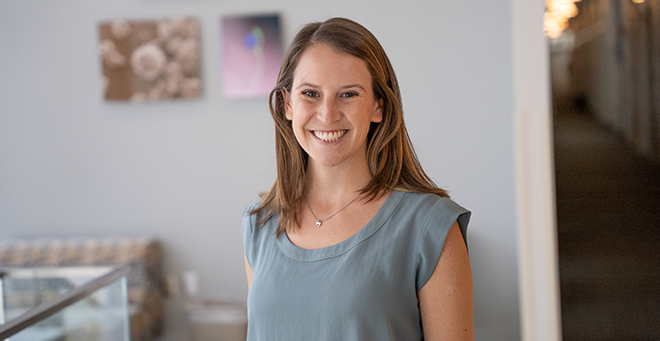
UMass Chan Medical School researchers have documented a phenomenon that had confounded clinicians: Some people persistently test positive for SARS-CoV-2, the virus that causes COVID-19, on rapid home antigen tests despite obtaining concurrent negative PCR tests.
Evidence of persistent false positive COVID-19 rapid antigen tests in certain situations was published in the New England Journal of Medicine Feb. 22 in a letter by Carly Herbert, BA, MD/PhD student; Apurv Soni, MD, PhD’21, assistant professor of medicine and co-director of the Program in Digital Medicine at UMass Chan; and David McManus, MD'02, MSc'12, the Richard M. Haidack Professor of Medicine, chair and professor of medicine.
Using national data on more than 11,000 participants in longitudinal point-of-care studies from the National Institutes of Health’s Rapid Acceleration of Diagnostics (RADx) program, in which participants serially took home antigen tests for COVID-19, along with the more specific molecular PCR tests, researchers found that 1.7 percent had at least one false positive with a rapid antigen test. Of the 191 participants with false positive results, 13 (6.8 percent) had persistent false positive results.
At a glance |
|---|
|
Most of the participants with false positive results—12 of 13—were women who used the Quidel QuickVue rapid antigen test. A higher percentage of those with persistent false positives self-reported having an autoimmune disorder, compared with those who only had an incidental false positive.
“This is the first time that we reported this phenomenon occurring, which we hope can give some recognition to what is going on and reassure clinicians who are faced with this issue and are often confused about what to make of this situation,” said Herbert.
Herbert said the team was surprised by the findings and how strongly persistent false positives were correlated with women with autoimmune conditions. But she hypothesized that there could be a cross reaction between the antigen test and a biologic factor, like a rheumatoid factor, a protein made by the immune system that can attack healthy tissue.
“We don’t know how prevalent this could be or the incidence of this condition,” Herbert said. “We anticipate there will be more reports now that we’ve put a name to it. So, we are interested in seeing how this evolves now that we have been able to identify this pattern.”
Since the letter was published, Dr. Soni has received more than 100 emails from patients and clinicians across the country saying that this analysis validated what they were experiencing personally or seeing in their clinics.


